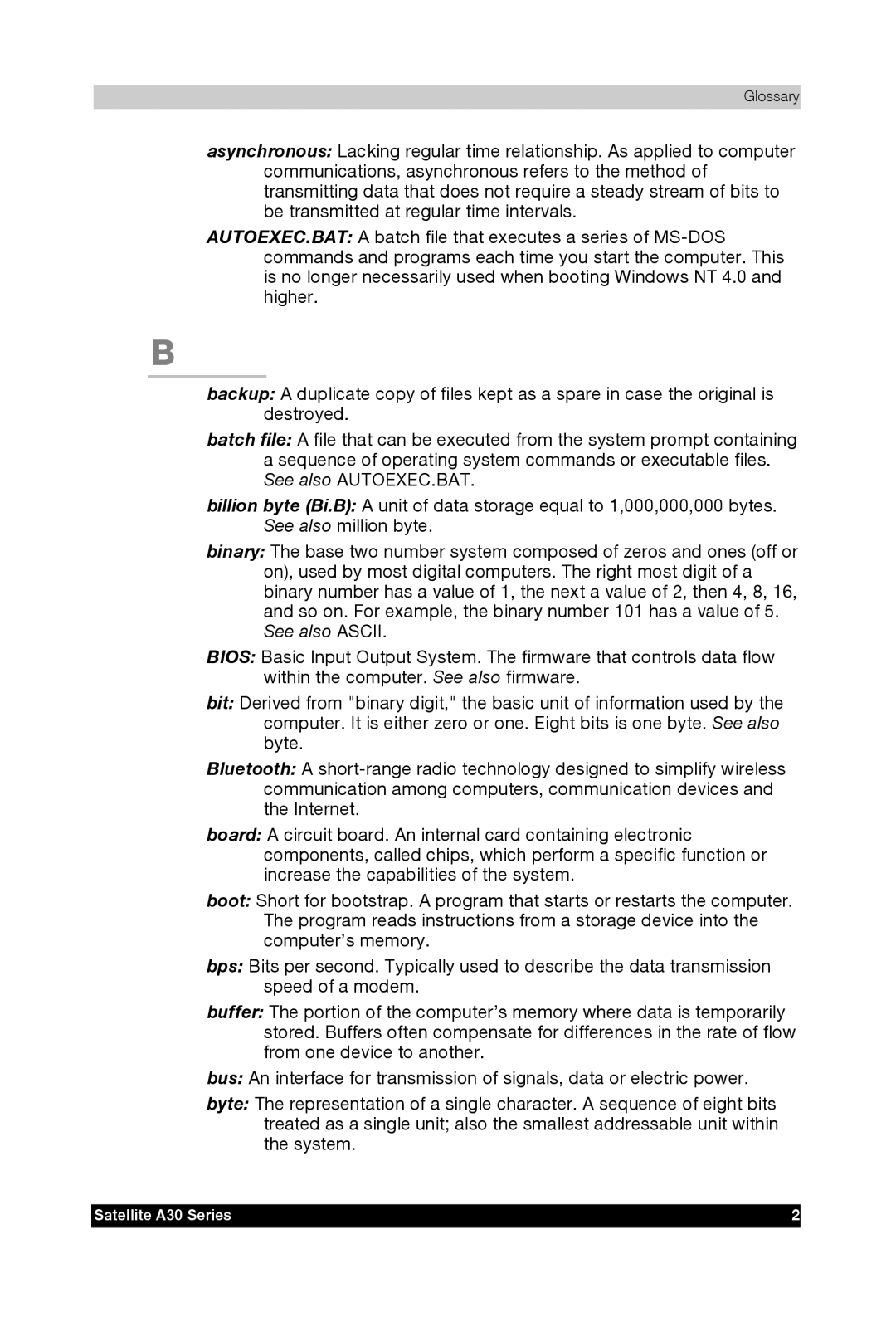
Glossary
asynchronous: Lacking regular time relationship. As applied to computer communications, asynchronous refers to the method of transmitting data that does not require a steady stream of bits to be transmitted at regular time intervals.
AUTOEXEC.BAT: A batch file that executes a series of
B
backup: A duplicate copy of files kept as a spare in case the original is destroyed.
batch file: A file that can be executed from the system prompt containing a sequence of operating system commands or executable files. See also AUTOEXEC.BAT.
billion byte (Bi.B): A unit of data storage equal to 1,000,000,000 bytes. See also million byte.
binary: The base two number system composed of zeros and ones (off or on), used by most digital computers. The right most digit of a binary number has a value of 1, the next a value of 2, then 4, 8, 16, and so on. For example, the binary number 101 has a value of 5. See also ASCII.
BIOS: Basic Input Output System. The firmware that controls data flow within the computer. See also firmware.
bit: Derived from "binary digit," the basic unit of information used by the computer. It is either zero or one. Eight bits is one byte. See also byte.
Bluetooth: A
board: A circuit board. An internal card containing electronic components, called chips, which perform a specific function or increase the capabilities of the system.
boot: Short for bootstrap. A program that starts or restarts the computer. The program reads instructions from a storage device into the computer’s memory.
bps: Bits per second. Typically used to describe the data transmission speed of a modem.
buffer: The portion of the computer’s memory where data is temporarily stored. Buffers often compensate for differences in the rate of flow from one device to another.
bus: An interface for transmission of signals, data or electric power.
byte: The representation of a single character. A sequence of eight bits treated as a single unit; also the smallest addressable unit within the system.
Satellite A30 Series | 2 |
